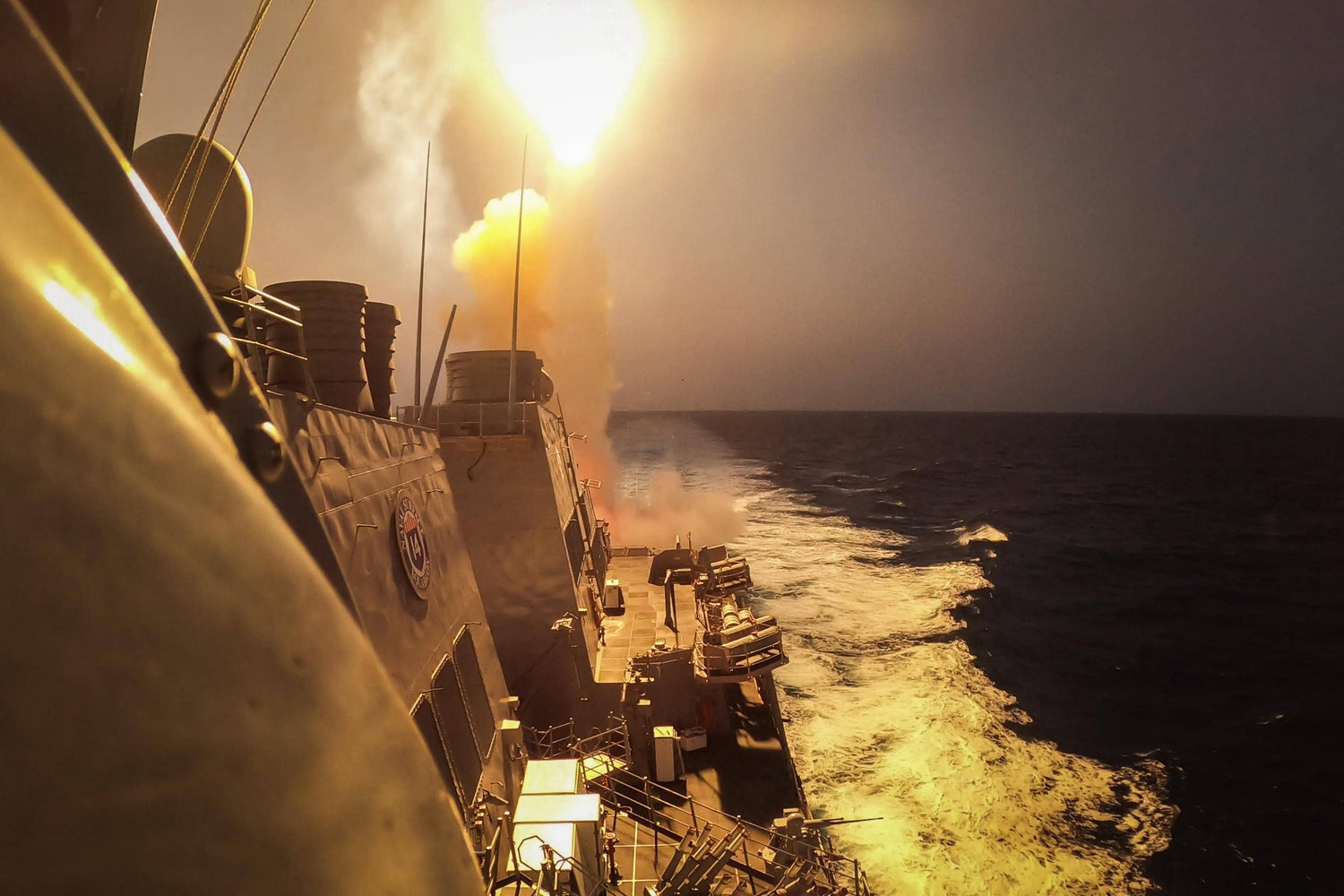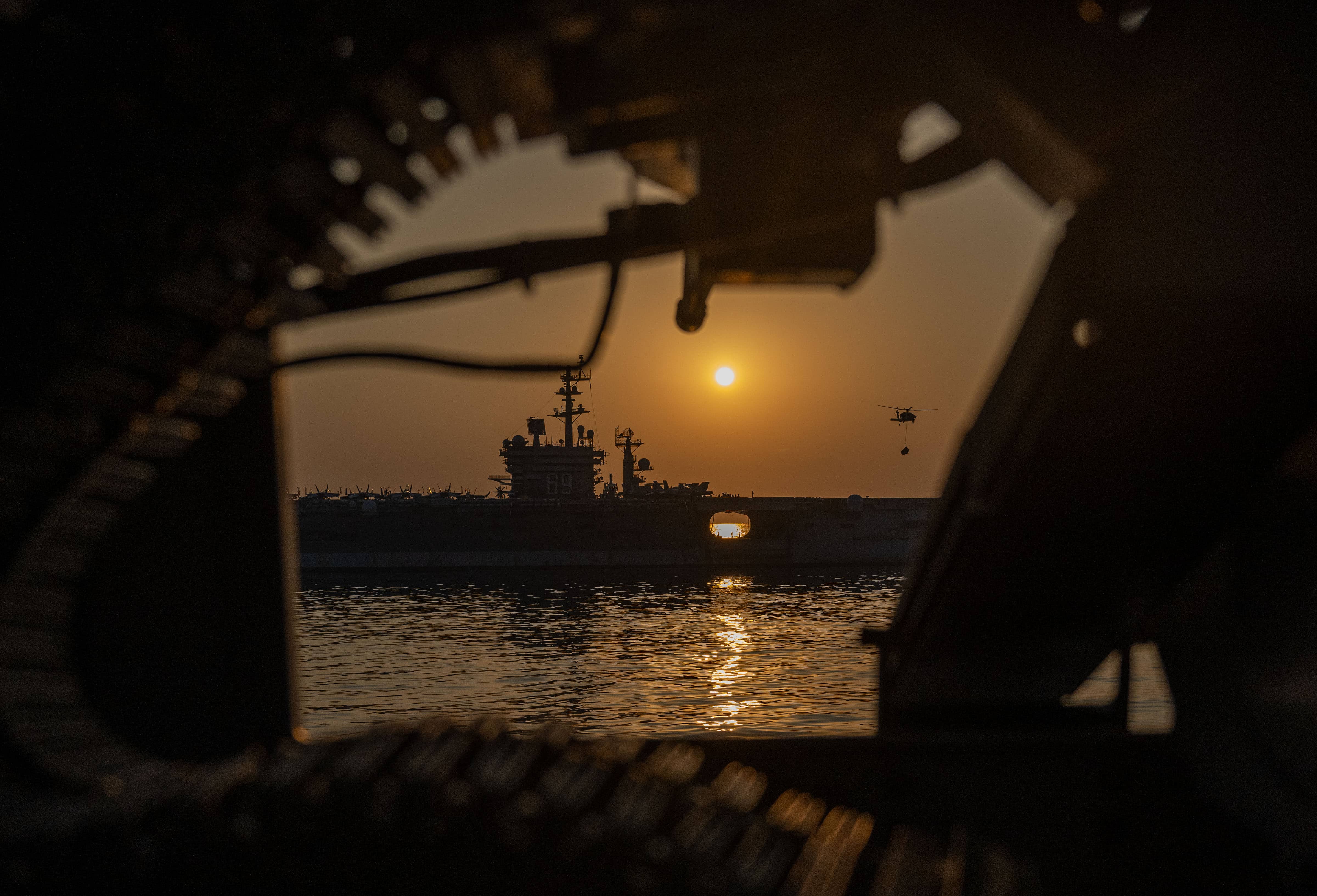231019-N-GF955-1113 RED SEA (Oct. 19, 2023) The Arleigh Burke-class guided-missile destroyer USS Carney (DDG 64) defeats a combination of Houthi missiles and unmanned aerial vehicles in the Red Sea, Oct. 19. Carney is deployed to the U.S. 5th Fleet area of operations to help ensure maritime security and stability in the Middle East region. (U.S. Navy photo by Mass Communication Specialist 2nd Class Aaron Lau)
The recent escalation in military actions by the United States against Houthi-controlled sites in Yemen marks a significant intensification in the ongoing conflict in the Middle East.
The Houthi movement, a predominantly Zaidi Shia Muslim group, has been a key player in Yemen's complex political landscape. The group has been in conflict with the Yemeni government for years, a situation that has drawn in regional and global powers. The Houthis, allegedly backed by Iran, have been accused of destabilizing the region through various militant activities.
In a recent development, the U.S. military launched a series of strikes against Houthi targets in Yemen. These strikes, conducted from the Red Sea, were in response to what the U.S. Central Command described as an "imminent threat" from 14 Iran-backed Houthi missiles. This action follows the U.S. government's re-designation of the Houthis as a specially designated global terrorist group, a move aimed at cutting off their financial resources and signaling a hardline stance against the group.
The U.S. military action included a large-scale operation carried out in conjunction with British forces, targeting over 60 Houthi sites across Yemen. Despite these efforts, Houthi aggression has persisted, notably involving attacks on commercial and military shipping. A notable incident involved the targeting of the M/V Genco Picardy, a Marshall Islands-flagged, U.S.-owned vessel, in the Gulf of Aden.
Furthermore, the U.S. intercepted ballistic missile parts en route to Yemen from Iran, highlighting the ongoing concerns about Iran's role in the conflict. The interception led to a tragic incident, with two U.S. Navy SEALs reported missing after attempting a rescue operation during the seizure.
The Pentagon, through its spokesperson Maj. Gen. Pat Ryder, has emphasized the U.S.'s commitment to preventing further Houthi attacks, citing the threat posed to international shipping. The U.S. response has included the interception of anti-ship missiles and strikes against Houthi missile launch sites. These actions reflect a broader strategy to protect international waters and deter further aggression.
Despite U.S. efforts, Houthi attacks have continued. The group launched an anti-ship cruise missile at a U.S. Navy destroyer, which was successfully intercepted. They also targeted a U.S.-owned ship in the Gulf of Aden and a Malta-flagged carrier in the Red Sea. The U.S. retaliated by striking Houthi missile sites that posed an imminent threat to naval and commercial vessels.
Following these exchanges, the Houthis claimed responsibility for attacking the Malta-flagged bulk carrier Zografia. While the ship was hit, there were no casualties, and it continued its journey. This incident underscores the ongoing risk to international shipping in the region.
The recent escalation of U.S. military action against the Houthis in Yemen represents a significant development in the conflict. It reflects the U.S.'s increasing involvement in the region and its commitment to countering what it perceives as a growing threat from the Houthi movement and its backers.
The designation of the Houthis as a terrorist organization and the subsequent military actions signal a hardline approach by the U.S., aligning with its broader strategy in the Middle East. However, these actions also risk escalating the conflict further, potentially drawing in more regional players and complicating the already volatile situation.
The ongoing attacks on commercial and military shipping highlight the broader implications of this conflict for global trade and security. The international community, particularly those with interests in the region, will be closely monitoring the situation, seeking to balance the need for security with the complexities of regional politics.
The situation in Yemen remains fluid and highly complex. The U.S.'s recent military actions, while aimed at curbing Houthi aggression, may have broader ramifications for the regional balance of power and the global geopolitical landscape. As the conflict continues to evolve, it will be crucial for all parties involved to consider the long-term implications of their actions on regional stability and international relations.





Leave a comment
This site is protected by hCaptcha and the hCaptcha Privacy Policy and Terms of Service apply.